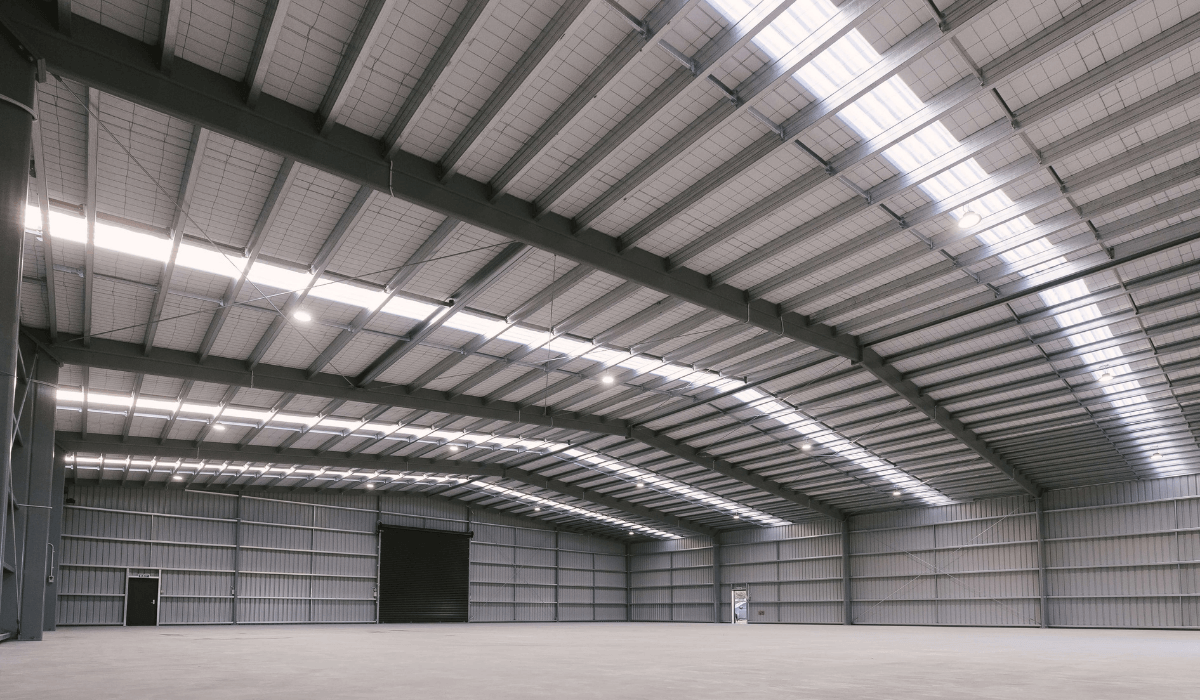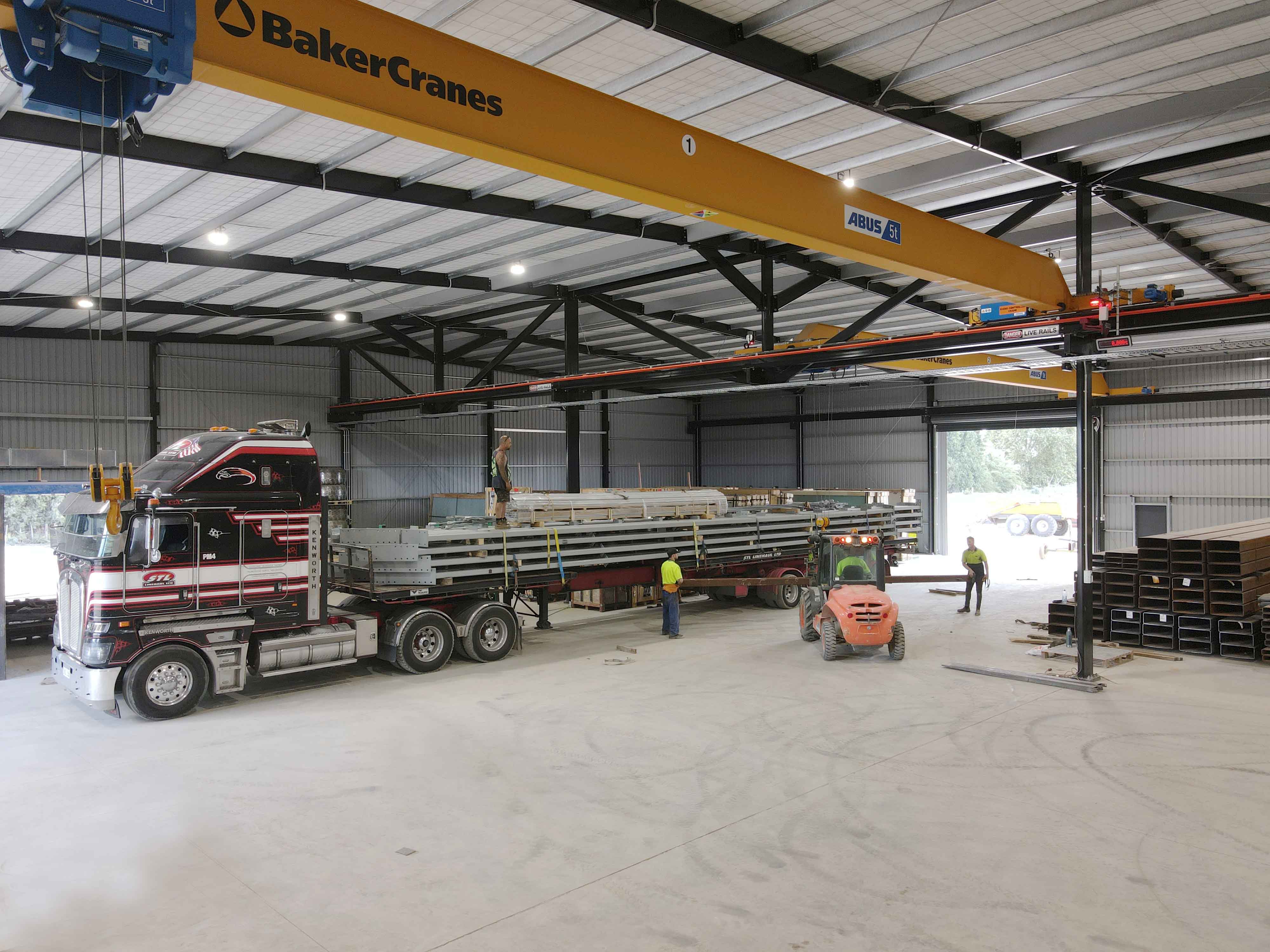Should I build or buy a commercial building?
Many people that enquire about a new building are business owners who are considering building a new premises for their business.
Some have been leasing a building and have now outgrown the space and need to move. Others have been leasing, and now that they have a bit more capital are looking to own their own space rather than paying someone else's rent.
Whereas, some have changed their business focus (starting to manufacture or keeping more stock, for example) and therefore need quite a different facility than what they have now.
Generally, all of them are considering whether to purchase an existing building or construct their own facility. There are times when the choice is clear, but there are often many factors to consider.
Factors to consider when building a commercial building
The first thing to consider is - Are you up for the challenge?
It takes time and effort to build a new commercial building. There are a lot of decisions to make and challenges do arise along the way. Therefore, there is no such thing as being completely hands-off in the process. You will still need to make the final decisions in a lot of areas and allocate time to work through the details.
If you are daunted by the prospect of building and have options to purchase a building that ticks a lot of boxes then this could be a wise option for you.
What are the advantages of buying?
Well, the first question is - is there anything you can buy that will suit your needs?
Buying can be an easy option but it can be a challenge to find a building that suits your requirements. Sometimes the layout, size, and location of a building does not lend itself well to your business and can have a really large impact on your operation.
- The first thing is to be clear on requirements.
Come up with a list of specifications and then divide them into ‘must haves’, ‘really like to haves’, and ‘nice to haves’. This will help you rate and rank different properties and give you a clear picture of what aspects of a building are a deal-breaker, and what aspects are not so critical. For example, how important is the location? If the location of your building means that your service staff are now 30 minutes further away from your customers, what kind of cost does that add to a business over a year? Or does location not matter so much as you ship products all over NZ? - Consider the cost of inefficiencies.
If a building is not lending itself to efficient storage of your products (low stud height, odd shape, or central columns/pillars) how does that impact your storage costs per item of product? Or, how does it impact the efficiency of your warehouse staff - what would the extra time be for them to pick an order? - Consider the next move after purchase.
Will there be enough room if you continue to grow for the next 2-5 years? Does the property have space or options to add on or expand? It is costly and distracting for a business to move, so you want to ensure that your purchase isn't just a band-aid fix for a couple of years. - Will you need to modify the building and can you provide a realistic cost for this?
Usually, a building will need some sort of modifying or revamping to be repurposed for another business. This could be a simple coat of paint, some updated furniture and floor coverings. However, modification costs can really add up if parts of the building need structure modification.
If you are likely to need to do modifications to the building structure, it pays to get professional advice from engineers before purchase so you know what is going to be required. Builders can offer practical advice but often are not qualified to make structural assessments or advice on what strengthening is required to meet the building code. It is ‘cheap insurance’ to pay an engineer to give advice rather than assume and run the risk of being caught out later on.
Other technical areas people often overlook when purchasing a commercial property:
- Is it susceptible to natural disasters such as earthquakes or floods?
Often people will know from history what areas of a town are flood-prone. However, councils are making their own determination on this and are marking some areas as flood-prone that have not historically had problems. It’s important you check that the title does not have a Section 71-74, as this could mean it is in an area that may get this put on the title in due course. - Is the site on the Hazardous Substances And Industries List?
The local or regional council will have a list of sites. A HAIL site is one that has had its soil contaminated over the years. This can be from the use of chemicals in the past or prolonged storage of timber treated products. Ex orchard or nursery sites can also be HAIL. This usually means that there are restrictions on the removal and disposal of spoil from the site. This can add cost if you do need to do a lot of earthworks.
What are the advantages of building a commercial building?
The first step is locating a suitable parcel of land. This can be difficult in some areas of NZ where there is limited industrial zoned land. We have outlined some recommendations on this in our guide to selecting commercial land. Once this part of the process is complete, there are various advantages to opting to build.
One advantage of building is you get the opportunity to design the building to suit your exact requirements. However, it is wise to be aware that you may have to compromise here - just like you may have to when you purchase a building outright.
For example:
- What are the land options?
If your area does not have a lot of land options your building size and spec may be constrained or dictated by the site and the covenants on it. - What will the bank allow you to borrow?
Banks view building as a riskier exercise than purchasing a building outright and may restrict the amount they are willing to lend, which may mean you need to compromise in some areas to meet budget.
If you do have a site that gives you options there are some real advantages to a custom build. For example, you can take a step back and completely review what your building requirements are. Often the process and storage methods of a business have evolved and developed around the constraints of the existing site. Now is a time to take a big step back and revise your processes from scratch. It is often advantageous to have a lean consultant or outside advisor come along to bring a fresh ‘unblinkered’ view of the business processes. It can be startling how small changes to efficiencies and storage methods can translate to large savings and a better workplace.
Does building a commercial building make the most financial sense?
.jpg?width=800&name=iStock-186164895%20(1).jpg)
You are in business so you want to make sure that whatever move you make, makes good financial sense. Often if you are purchasing a building outright it can be hard to get it at a below-market rate as you are typically competing with other buyers. Getting a building at a below-market rate usually relies on luck and good timing - or a good network of property contacts.
However, with a build, you can often end up with a property that is worth considerably more than the cost it took to build. There are a few reasons for this:
- It takes time and effort to build and also contains an element of risk. Therefore, other business owners or property investors will pay more to get a building complete and ready to use or rent.
- In the past, increases in commercial property prices have outstripped increases in build costs. This has been driven by the general trend in NZ of rapid price increases. But there has also been a swing in the market from investors purchasing commercial properties rather than residential (due to the changes in interest deductibility). This has increased demand for commercial properties and supply has not kept up with this.
How do I calculate what my finished commercial building will be worth?
The obvious way is to get a registered valuer or a real estate agent to look over your concepts and provide a valuation. Banks will typically require this for loan approval.
However, a simple ‘DIY’ way to get an estimate of the value of the building is to compare it to other similar buildings. This will help you to determine what their current value or recent sale value is. It is always important to bear in mind that the RV of a property can be quite different to its value if it was sold today. This can be difficult if you don't have a lot of close examples to compare to - for example, if you are building in a new industrial zoned area with few buildings complete.
Another way is to reverse engineer the rental yield of the property into a dollar value. This is because many investors look at the yield of the property, not the cost of construction. This means that you can determine the value of your property using a formula based on current market rental prices and the yield investors are looking for.
| For example: If the rent of a warehouse is set at $100 per m², and an investor is looking for a 6% yield, we can work out what they might value the building at. For a 2,000m² warehouse this calculation could look like: 2000*$100 = $200,000 rent PA If the investor is looking for a 6% yield before outgoings, this would give a value of $3,333,333 for the property. Ratings for things like exterior hardstands and offices would need to be taken into account, along with your local rates. You can find your local rates by browsing buildings advertised for rent or checking out some market data from real estate agents. Colliers often publish regular market updates. |
There are also many other ways to look at the financial impacts of building a new premises such as:
- Cost of 3PL VS doing it in-house
Sometimes 3PL works well and is efficient for people, and other times the cost and loss of control can be quite negative to a business. - Payback of the building
If the building allows you to service a new market or bring a new product out then the capital gain may be secondary as the profits from the new venture will quickly cover the cost of a new building.
Whether it is best to build or buy comes down to your specific circumstances. It is wise to get good advice from your accountant/board and other parties such as real estate agents and banks. If you’d like some advice from our team of experts, feel free to get in touch.



